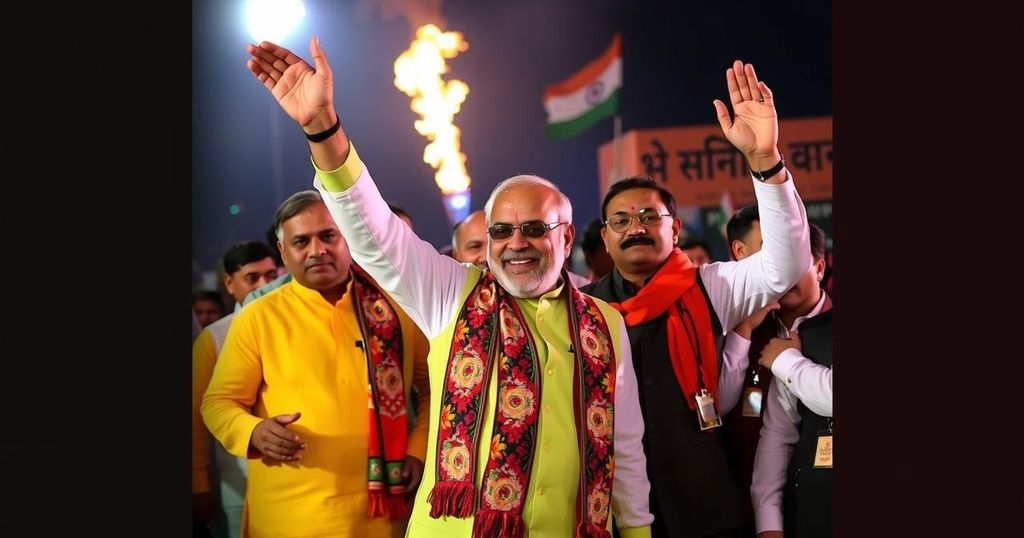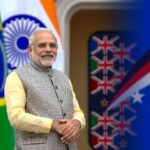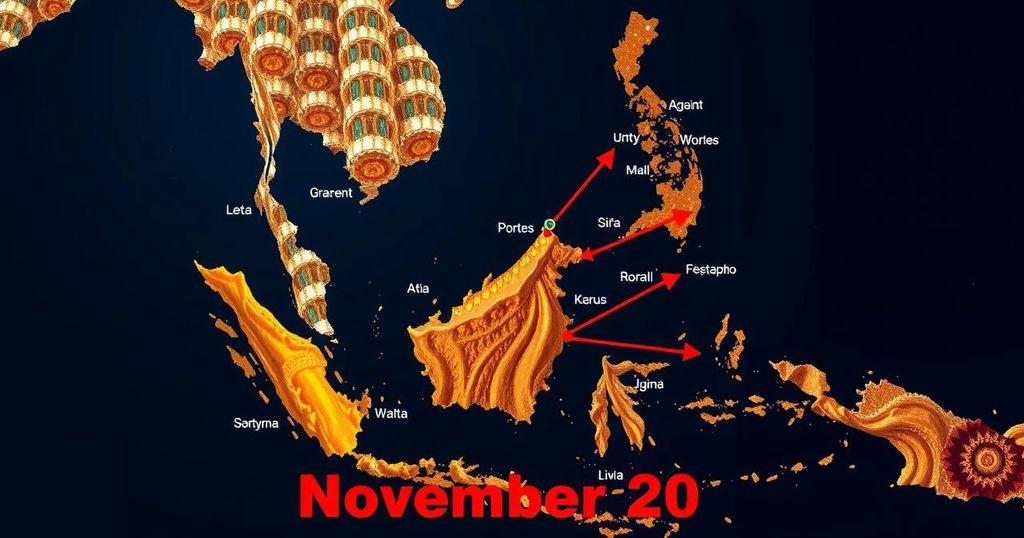BJP Expected to Secure Major Victory in Maharashtra Elections Amidst Political Shift
Prime Minister Narendra Modi’s BJP is projected to secure a decisive victory in Maharashtra, leading in approximately 220 seats, surpassing the majority threshold necessary to govern. This significant win follows recent electoral challenges and sets a positive trajectory for the BJP, even as they potentially face losses in Jharkhand, highlighting the contrasting political climates in India’s diverse states.
Prime Minister Narendra Modi’s Bharatiya Janata Party (BJP) is poised to achieve a decisive victory in Maharashtra, India’s wealthiest state, based on current election trends. The BJP and its coalition allies are projected to secure approximately 220 out of 288 legislative assembly seats, surpassing the necessary majority to establish a government. This election marks the first significant regional polling in Maharashtra following the recent parliamentary elections, during which Modi’s party lost its majority and relied on regional alliances to govern.
Maharashtra, housing the financial capital of Mumbai, is politically significant, and the BJP’s success is anticipated to enhance its standing following recent regional victories, including in Haryana. Despite the promising outlook in Maharashtra, the BJP faces potential defeat in the eastern state of Jharkhand, where the Congress party appears to be gaining ground.
During his campaign efforts, Modi emphasized various welfare initiatives aimed at the agricultural sector, which is vital in Maharashtra due to its production of key crops. Opposition parties similarly pledged similar benefits, including farm loan waivers and targeted financial aid for women and elderly citizens, which may challenge the incoming government’s fiscal sustainability as it endeavors to fulfill such promises.
The political landscape in Maharashtra has been tumultuous, featuring breakaway factions from the Shiv Sena and National Congress Party (NCP) aligning with the BJP to remain in power. In contrast, Jharkhand has experienced its own political strife, notably with Chief Minister Hemant Soren facing corruption allegations and navigating efforts to regain public support post-release from custody.
Maharashtra stands as a critical state in India, both economically and politically. It is the nation’s richest state, with Mumbai as its capital, serving as a major financial hub. The political climate has shifted dramatically with the BJP’s recent coalition governance alongside splinter groups of established regional parties like the Shiv Sena and NCP, signifying a notable transformation in party alliances and power dynamics. The ongoing electoral campaigns have been rife with promises aimed at addressing the needs of the agricultural community, reflecting the state’s agrarian economy. In contrast, Jharkhand presents a different story with a history of political instability. Seven chief ministers have ruled since the state was formed, and allegations of corruption against its current leader illustrate the region’s ongoing political turmoil. The BJP’s attempts to capitalize on this instability highlight the contrasting situations between these two states in the context of regional elections.
The anticipated victory of the Bharatiya Janata Party in Maharashtra represents a significant consolidation of power and provides a crucial boost following recent electoral challenges. However, the party must navigate the complexities of fulfilling ambitious electoral promises against a backdrop of fiscal scrutiny. The outcomes in both Maharashtra and Jharkhand illustrate the intricate nature of Indian regional politics, where governance is often intertwined with local socio-economic dynamics, and the changing allegiances significantly impact the political landscape.
Original Source: www.bbc.co.uk








Post Comment